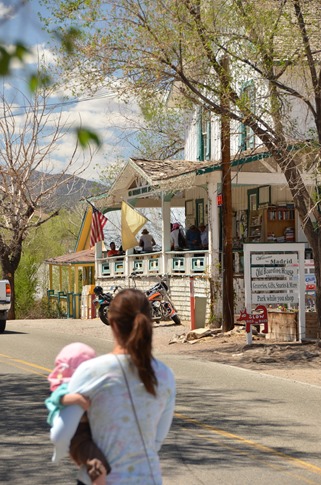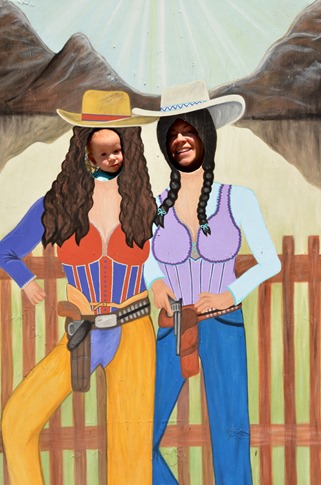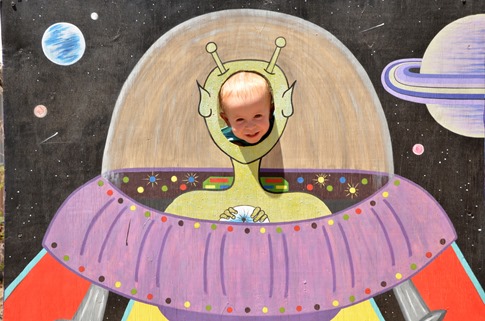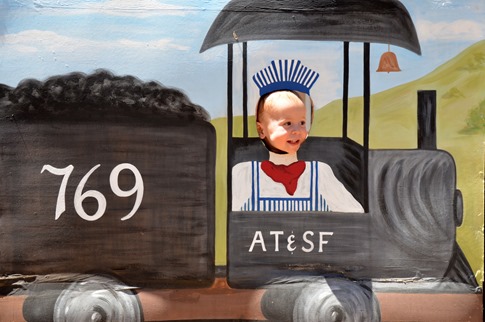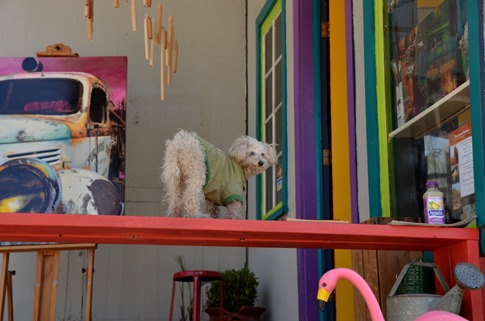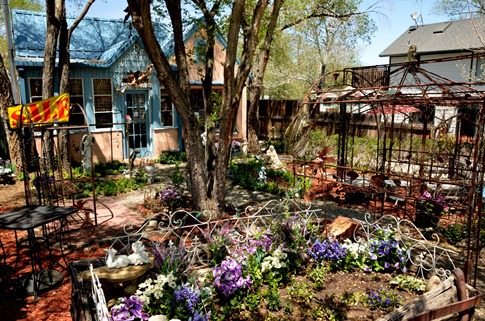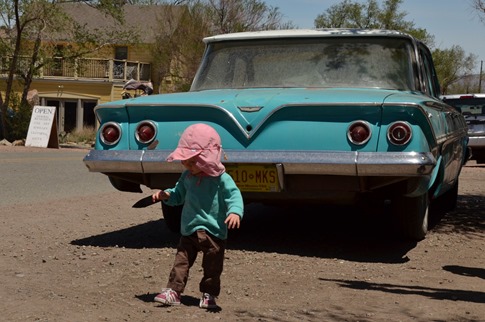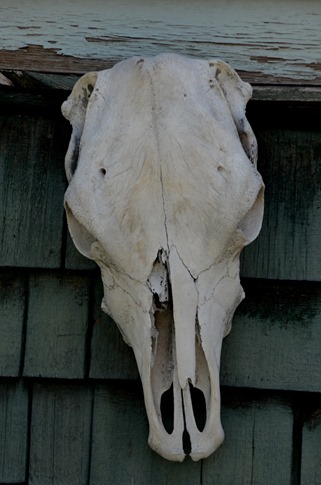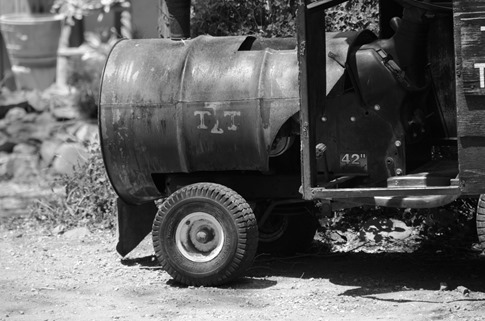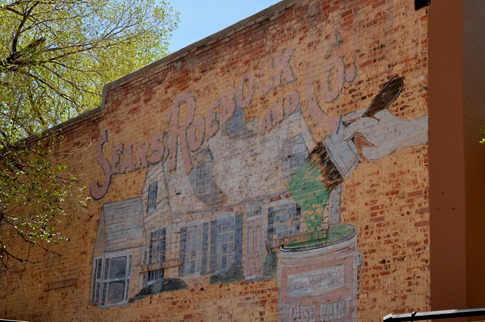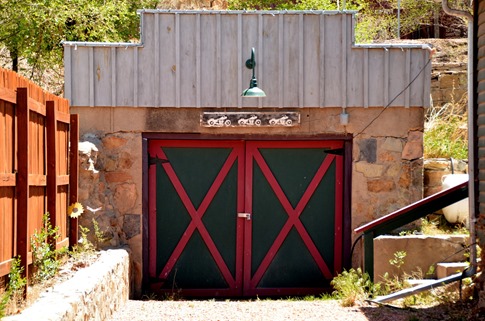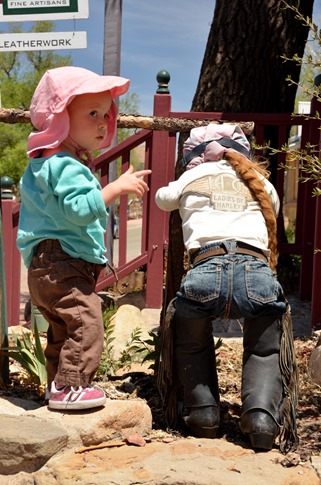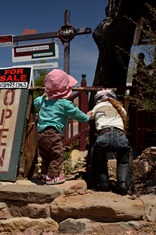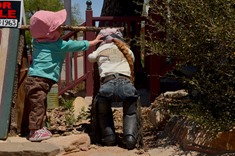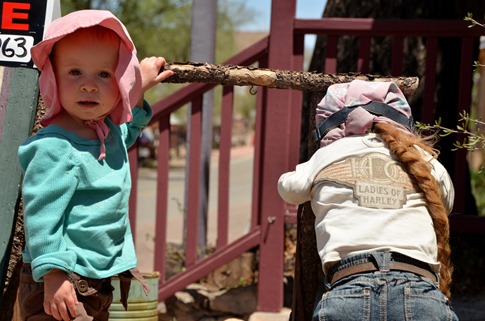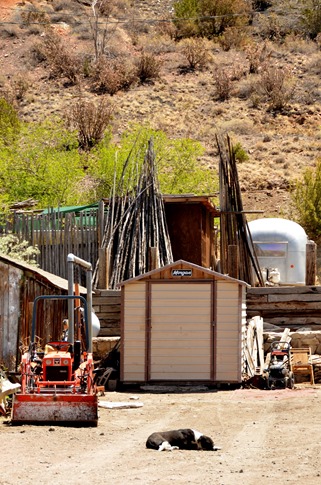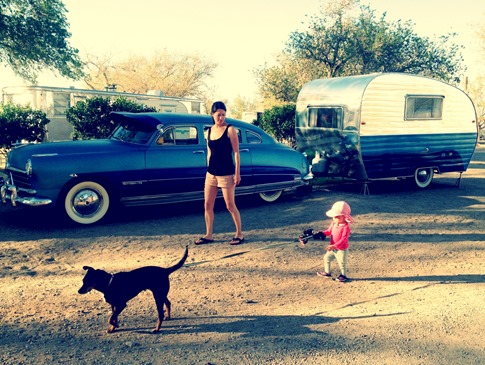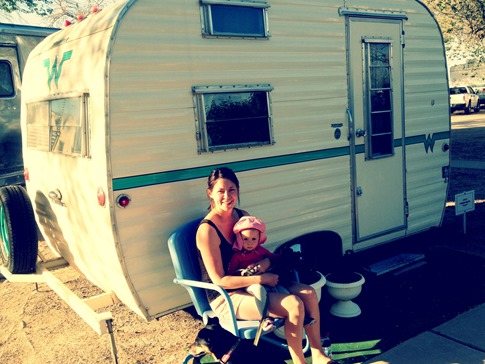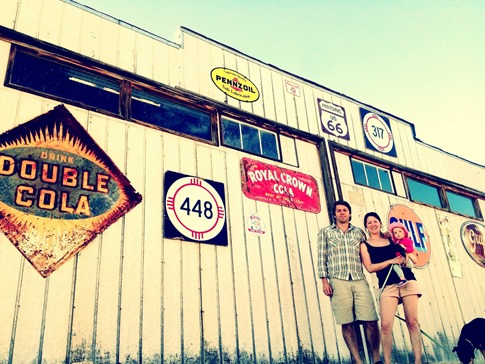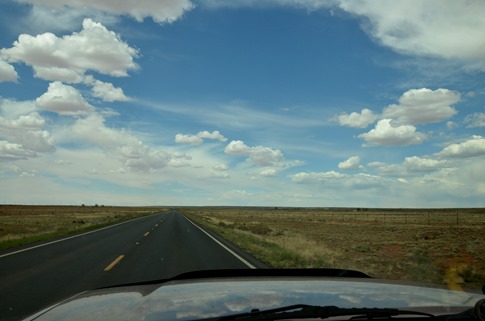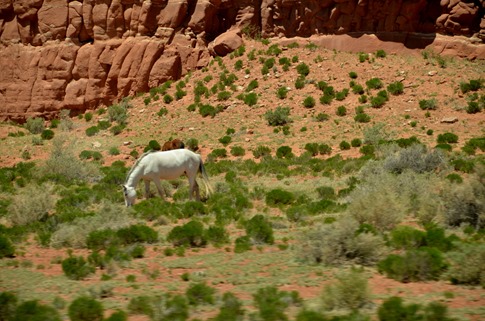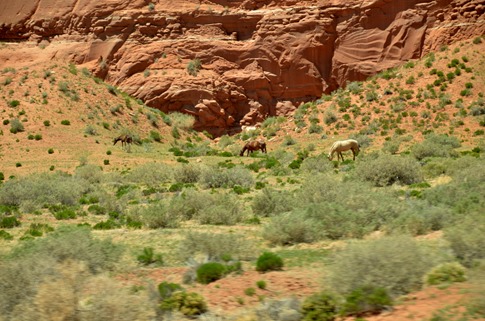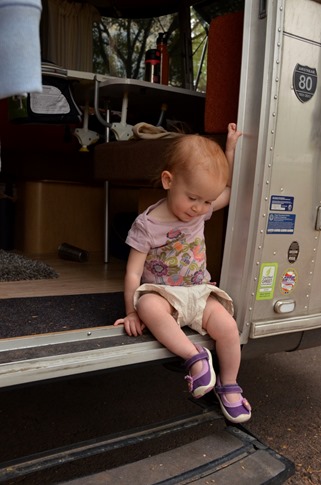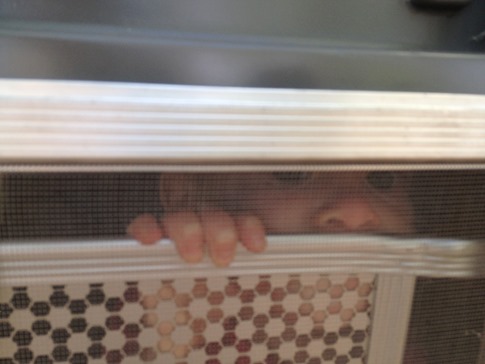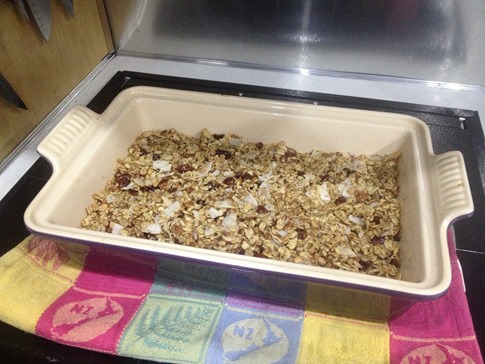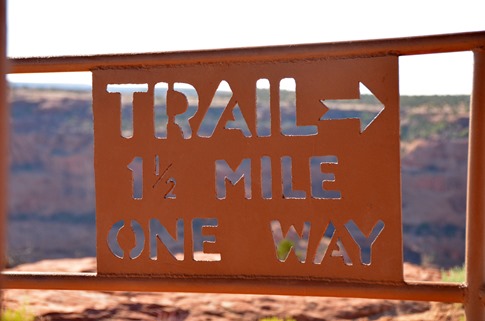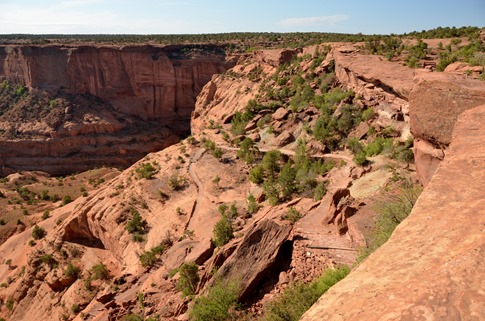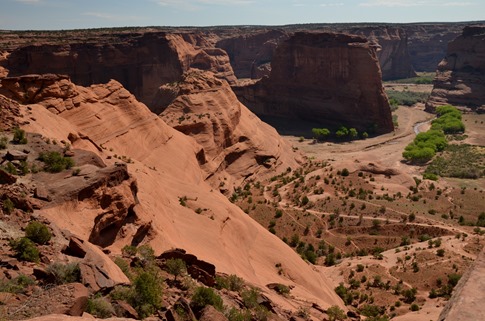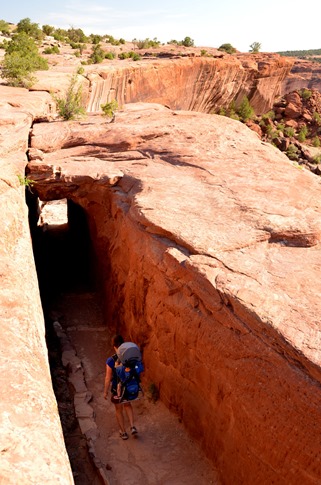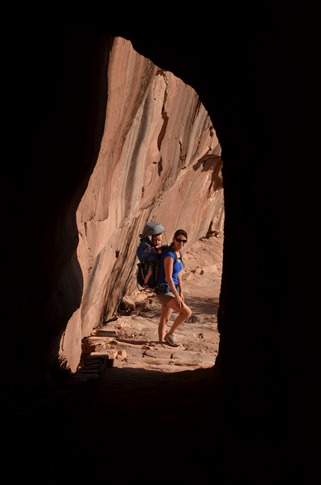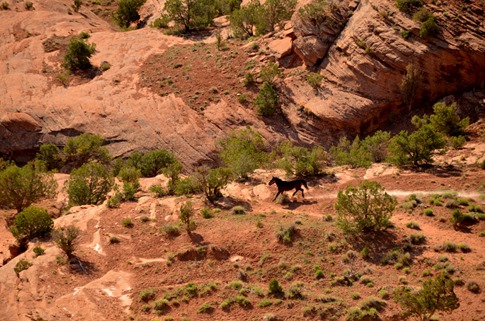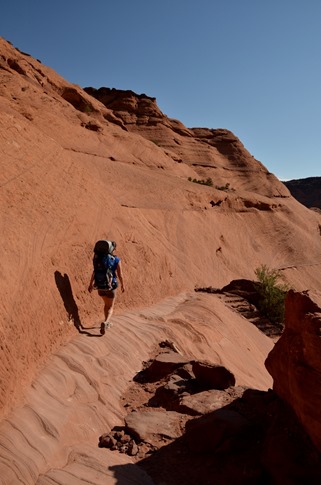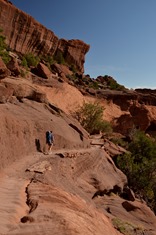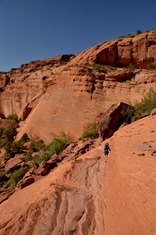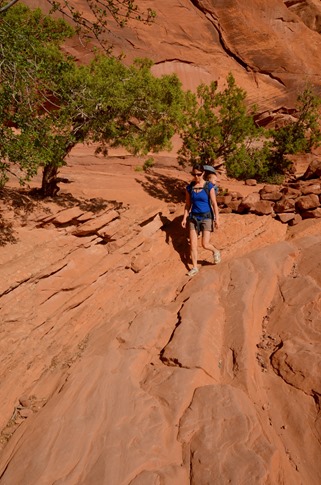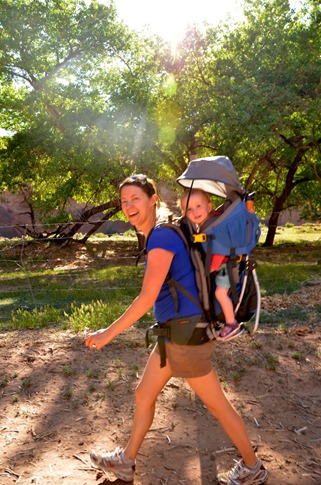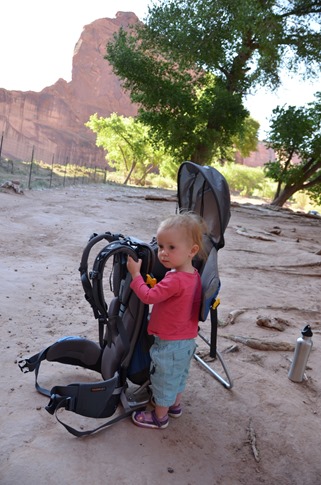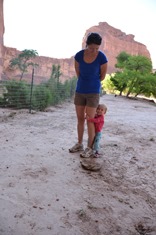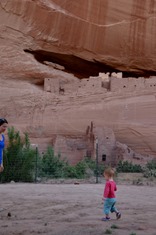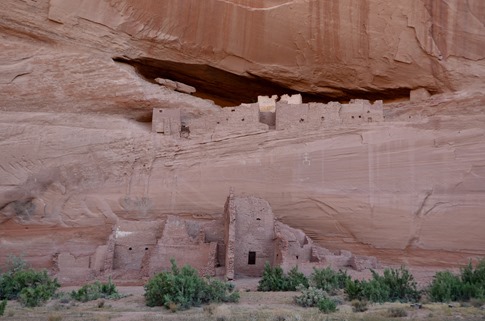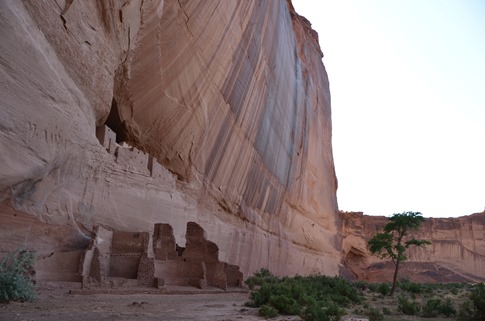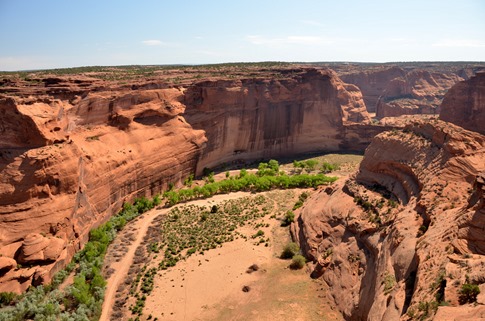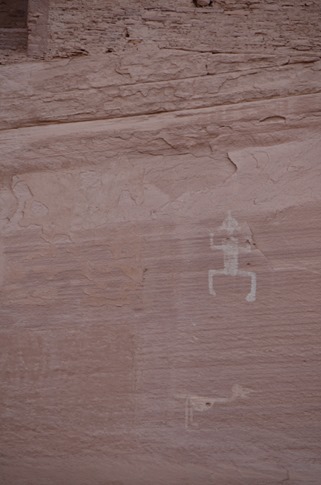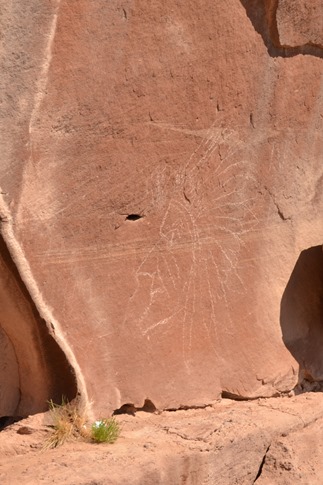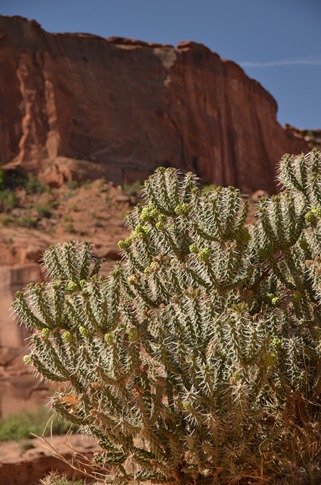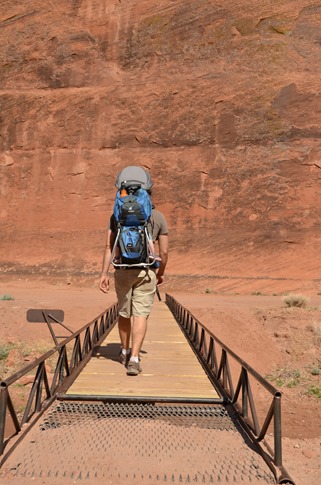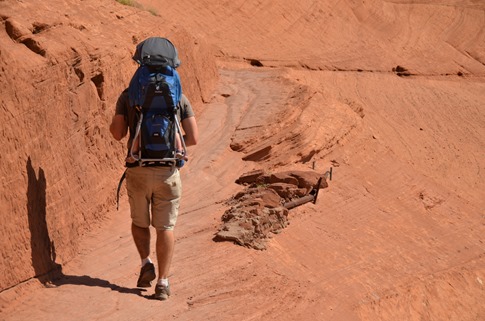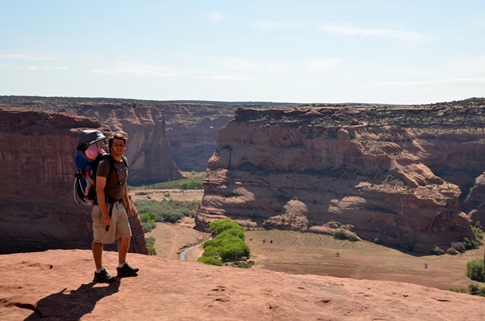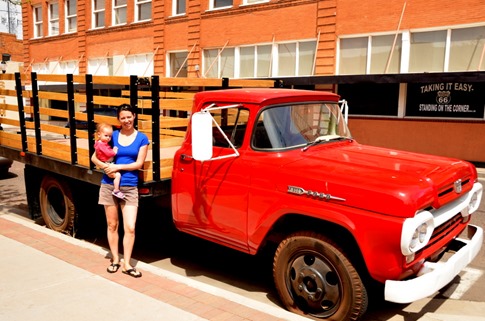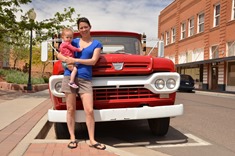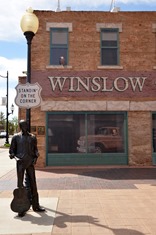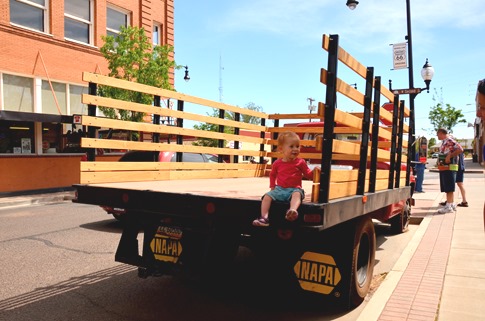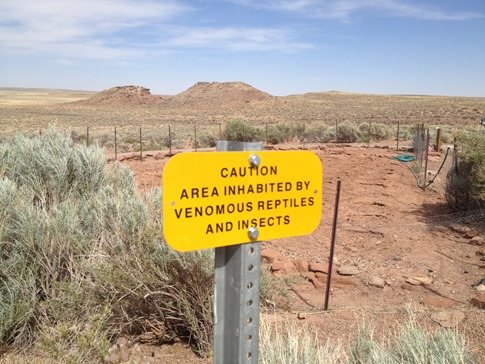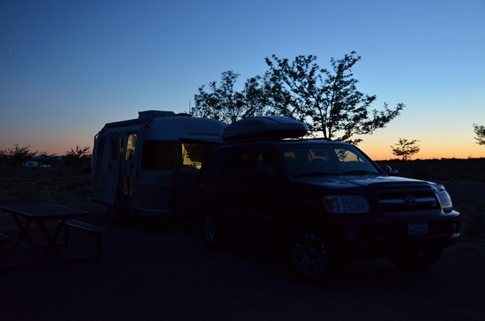Driving into Santa Fe, we had begun to see signs for the Historic Route 66. This iconic road was one of the first main highways in the US, established in 1926 and running almost 2,500 miles from Chicago to Los Angeles. In its heyday, diners, motels, campgrounds and roadside attractions sprouted along its length, prospering from the constant traffic. But beginning in the 1950’s, with the development of a more complete interstate highway system, travelers were diverted to larger, newer routes until in 1985, Route 66 was officially decommissioned. In 2006, I rented a F650GS motorcycle in Munich Germany and did a ride through the Alps that most people only dream about. Late one night in a bar in Interlaken, I met up with a German biker who dreamed one day to ride his Harley along Route 66 (read the post). For many in the US and around the world, Route 66 symbolizes the essence of America.
But before we could connect with this piece of history, we had to follow another one, the “Turqoise Trail” from Santa Fe to Albuquerque. Lately, when I Google a destination or route pertaining to this trip, I include the word “Airstream” in the query. For some reason, I just find that the results from other Airstreamers tend to be a little more thoughtful, perhaps more adventurous or open minded and provide information more relevant to what I’m looking for. In this case, my search turned up a post from Camp1899, a couple who had lived on the road in an Airstream for a period before settling in Colorado. While we confirmed their report that the eclectic town of Madrid was really the only attraction on the 50 mile backroad, we actually enjoyed walking the streets and poking into the galleries and shops that were a unique mix of wild west, Route 66 and modern kitch.
Roadside attraction..
General quirk and 50’s imagery…
Wild West…
Okay, honestly, I don’t know what this display of a tiny dummy leaning against a rail wearing chaps and biker gear outside a leather shop was supposed to be, but Wynne checking it out was pretty hilarious.
And of course, mandatory Airstream content…
We ended up that night at another Google+Airstream recommendation, the Enchanted Trails RV Park. As it happens, the week before, this place had hosted a “Vintage Trailer Academy” teaching some of the finer points of restoring old trailers that some other travelers we follow had attended, but I hadn’t put it together. We pulled in with enough time to walk around a few of the classic trailers they have available for nightly rentals. Black and white pictures from the early part of the last century made it easier to imagine road weary travelers pulling off the open road for the night.
The next morning, we cut north from I-40 – the four lane interstate responsible for much of the obsolescence of Route 66 in this area – towards the Canyon de Chelly in the Navajo Nation, the largest Native American reservation in the US at almost 30,000 square miles. Driving across the wide open mesa we kept an eye out for wild horses and wondered at the clouds that looked like they were painted in the sky.
Driving into Chinle was like a flashback to Mexico; Simple houses, often with yards scattered with clothes, toys, cars, etc plus a few animals picking their way through it all. We made our way to the Cottonwood campground inside the park where we picked from among several available sites with no hookups and BIG ASS ants everywhere but still everything we needed. We just didn’t let Wynne below the step…
After chatting with an older couple in a 1967 19’ Airstream, we retreated back to our more modern version to dim the LED lights, watch a show on the Apple TV and smell the breakfast bars Ann co-opted from a recipe Leigh from Aluminarium and Amanda from Watsons Wander have been making cooking in the oven.
There’s one main ruin you can hike to without a guide in Canyon de Chelly, the White House. With a little more time, we might have considered one of the four wheel drive tours to other areas although pets aren’t allowed even with your own vehicle. So our only option was to hike in the morning and leave Gorilla in the trailer with fans on full blast before things heated up. And it’s a good thing we did ‘cause the “trail” was steep switchbacks, often completely exposed (except for the tunnels blasted into the rock!).
When we heard a rumbling below, we looked down to see this horse galloping across the canyon floor. While the Puebloan people who built the stone dwellings we were on our way to see have been gone for over 700 years, there is still private land in the canyon where Navajo families live.
The best part of this 500 feet of switchbacks were the areas where the trail had been chiseled into the face of the rock.
As has been the case, Wynne was a super trooper in the backpack.
And didn’t really want to leave it once we got to the bottom.
Like at Mesa Verde, you could see the strategic advantage in the location of the dwellings. In this case, they were largely hidden from sight. Plus, from the base, we could hear the echoes of the voices of people approaching reflecting off the high canyon wall.
The White House is hung on the canyon wall just above the Cottonwood trees in the middle of the picture.
Some non-original petroglyphs higher up the trail…
Somehow, I’d drawn the uphill card just as the day started to heat up.
It’s a good thing you can’t see how wet the back of my shirt is in this pic. Fortunately, Wynne, passed out in the backpack, didn’t seem to care.
Angling southwest from Chinle through the Navajo Nation can only be described as “lonesome.” Despite leaving with 3/4 of a tank, we coasted into the first windy, desolate outpost we came to pretty much on fumes. The dusty shelves of the store contained a sparsely-stocked variety of junk food, Christmas decorations and cleaning supplies.
Happy to be back down on I-40, a loop through Winslow, Arizona was too tempting to pass up. At each intersection, I peered down the cross street looking for it. I just knew it was there. Someone had to have thought of it. And then, there it was, a flatbed Ford parked on an entire corner dedicated to the Eagles song that mentions the town.
We spent the night at the Homolovi State Park near Winslow. Despite my assumption that the name referred to a “particularly friendly” line of early humans, it was in fact a stopover location during a significant migration of the Hopi people in the 14th Century. The very nice (and lonely) ranger eagerly described the hiking opportunities in the park to the point that I actually considered suggesting to Ann that we pity him with a walk in the morning. That is until he added, “Just keep your eyes open for critters out there. You know, rattlesnakes and bark scorpions. Their bite is fatal.” Uh, I think we’ll just take a couple showers, hit the hay and head out early in the morning…

